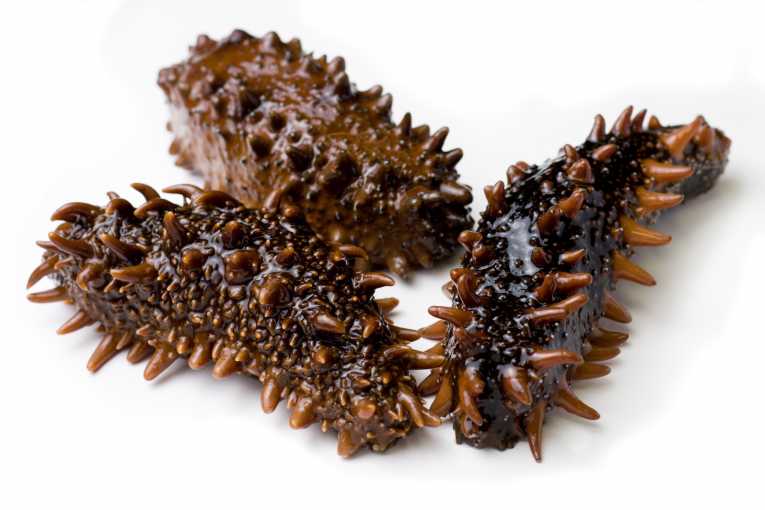A humble sea creature is being hailed as the possible solution in the campaign to save the world's oceans from pollution.
Scientists at Newcastle University, in North East England, working with colleagues in Africa, say the sea cucumber is important because it is responsible for cleaning up the sea bed by consuming and mixing marine sediments.
However, the animal is used widely in Chinese medicine and cuisine because it is a rich source of glucosamine and chondroitin which are used in a range of common food supplements.
Natural stocks of sea cucumbers are now seriously depleted around the world but at Newcastle University, a team led by Professor Selina Stead is investigating how to use them to develop a more sustainable way of farming in the sea.
Dr Matthew Slater, an expert in sea cucumbers and part of Professor Stead's team, said the aim was to investigate the sea cucumber's potential as a natural cleaner on fish farms around the world.
Dr Slater said: "We wanted to find a way to clean up waste produced by large-scale aquaculture so that farming activities in the sea have little or no impact on the ocean floor. By growing sea cucumbers on waste from fish farms, we are not only farming a valuable food product and giving the wild sea cucumber populations a chance to recover, we are also developing solutions to fish farming impacts."
The sea cucumber project was unveiled as part of a marine conference being held at Newcastle University (Feb 4), marking the launch of the marineNewcastle network, which will bring together the university's expertise in marine science and technology to address challenges facing the marine environment.
Until now, the team has carried out most of its work at Newcastle University's Dove Marine Laboratory but the next step will be to introduce sea cucumbers to fish farms around the UK.
As well as looking at the potential for farming sea cucumbers in the UK, the team – including marine biology student Camilla MacDonald – is leading a major aquaculture project in Tanzania where animals are being grown in lagoon-based cages in a hatchery built for producing juveniles to support a growing industry.
Professor Stead, former President of the European Aquaculture Society, said: "One of the key aims of the project is to find solutions for developing community-led aquaculture in East Africa as a way of tackling poverty. Sea cucumbers are fairly simple to farm, they just require clean water and plenty of food in the form of nutrient-rich waste.
"Man's impact on the sea has escalated in recent decades and it is vital we work quickly to try to reverse some of the problems we have caused. Key species of sea cucumbers are already dangerously close to extinction unless we pull back now and give them a chance to recover."










